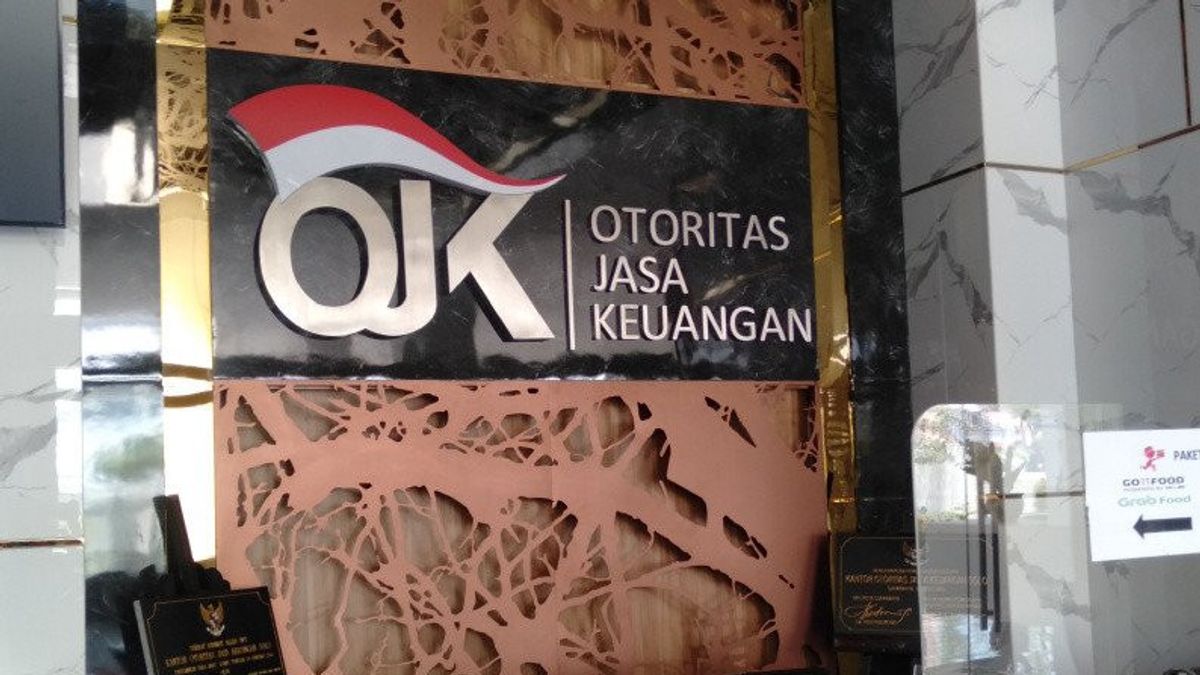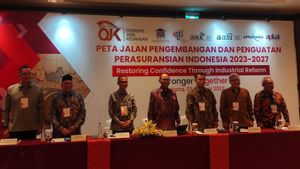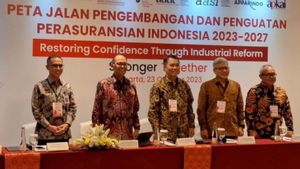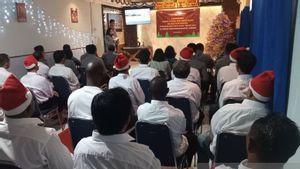JAKARTA - Chief Executive of Insurance, Guarantee and Retirement Supervisory Funds of the Financial Services Authority (OJK), Ogi Prastomiyono revealed that the Roadmap for Insurance Development and Strengthening 2023-2027 has an important role in responding to various strategic issues and challenges that exist in the insurance sector and the Indonesian economy.
From an industrial perspective, based on OJK data, the penetration rate of insurance in Indonesia in 2022 is still quite low, namely at the level of 2.27 percent when compared to several peer countries in ASEAN.
In line with this, the level of insurance density is also still at a level that is not optimal, namely at the end of 2022 it will only reach IDR 1,923,380 per population.
"The target set out in the final period of this roadmap, namely in 2027 it is hoped that the penetration rate of insurance in Indonesia can reach 3.2 percent with the density level at the level of Rp. 2,400,000 per population," he explained Monday, October 23.
Ogi conveyed that from a consumer perspective, based on the National Survey of Financial Literacy and Inclusion (SNLIK) conducted by OJK, literacy and inclusion in the insurance sector are still below the level of other financial service institutions.
In addition, there is a gap between literacy rates in the insurance sector in 2022 which is at the level of 31.7 percent but the level of inclusion is at the level of 16.6 percent.
According to Ogi, this is one indication that there are still certain factors that reduce public interest in insurance, although some of the people understand the benefits of insurance products to manage individual risks and business risks.
In addition, in the insurance industry there are still several strategic issues, including those related to the capital support of insurance companies, solving problems with problematic insurance companies, digitizing to support the effectiveness and efficiency of the insurance business process, and the reach of insurance company services.
Through the launch of this roadmap, OJK together with all stakeholders aim to respond to various strategic issues to create a healthy and credible insurance sector, so that it is able to grow and develop sustainably.
Industrial reform to increase the level of public confidence through the Roadmap for the Development and Strengthening of Indonesian Insurance 2023-2027 is supported by four pillars of the principle of development and strengthening, namely: 1. Pillars of strengthening the resilience and competitiveness of the insurance industry2. Pillars of developing elements in the insurance industry ecosystem3. Pillars of accelerating the digital transformation of the insurance industry4. Pillars of strengthening regulation, supervision, and licensing.
Meanwhile, the four pillars will be run in three different phases from 2023 to 2027, starting with a phase of strengthening the foundation, followed by a consolidation phase and creating momentum, and ending with a phase of alignment and growth.
SEE ALSO:
Some strategic programs in the three implementation phases include:1. Strengthening governance, risk, and compliance (GRC)2. Strengthening the institutions of insurance and reinsurance companies through strengthening capital, utilization of digital technology, and implementation ofPSAK 173. Grouping insurance companies based on equity into two groups (grouping insurance companies) includes the establishment of Insurance Company Business Groups (KUPA)4. Market deepening through mandatory insurance, micro insurance, parametric insurance, and others 5. Arrangement of arrangements based on research and international standards6. Implementation of the national strategy of strengthening literacy and consumer protection.
Ogi conveyed that all parties involved in the preparation of roadmaps have conveyed a joint commitment to implementing all strategic programs for roadmaps for development and strengthening insurance to create a healthy, efficient, with integrity insurance industry, strengthening protection.
The English, Chinese, Japanese, Arabic, and French versions are automatically generated by the AI. So there may still be inaccuracies in translating, please always see Indonesian as our main language. (system supported by DigitalSiber.id)















